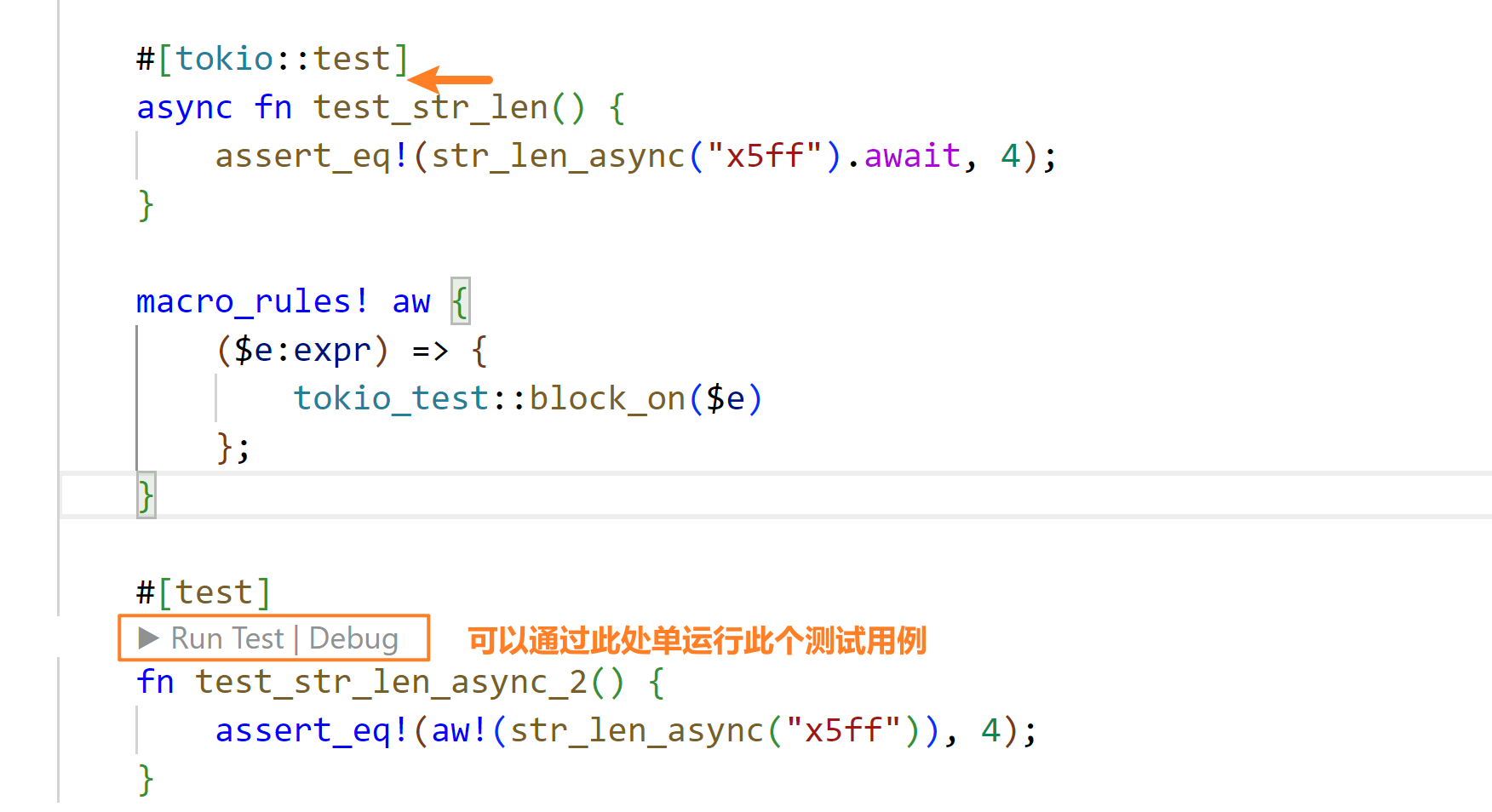wmproxy
wmproxy已用Rust实现http/https代理, socks5代理, 反向代理, 静态文件服务器,四层TCP/UDP转发,七层负载均衡,内网穿透,后续将实现websocket代理等,会将实现过程分享出来,感兴趣的可以一起造个轮子
项目地址
国内: https://gitee.com/tickbh/wmproxy
github: https://github.com/tickbh/wmproxy
自动化测试
在程序中,通常会写一些自动化测试的功能,来保证我们的代码正确的执行符合预期的效果,随着时间的变化,当代码变动的数据越来越多时,保证能实时的测试确保整个系统高概率的正常运转,不会因为改一个Bug而产生另一个Bug
Rust中的测试
Rust中的测试分为两个部分
- 文档测试
文档测试通常在函数前面或者类前面,通过文档测试来保证该函数的运行能符合我们的预期,通常
/// ```包围,以下为测试示例,如果仅仅以///开头那么测试
/// 测试vec的大小
///
/// use s服务器托管网td::vec::Vec;
///
/// let mut vec = Vec::new();
/// assert_eq!(vec.len(), 0);
/// vec.push(1);
/// assert_eq!(vec.len(), 1);
fn show_test() {
}
此时我们运行cargo test可以看的到如下输出:
running 0 tests
test result: ok. 0 passed; 0 failed; 0 ignored; 0 measured; 0 filtered out; finished in 0.00s
此时并不能识别我们的文档测试用例,那么我们在代码前后加上/// ```再来运行
/// 测试vec的大小
///
/// ```
/// use std::vec::Vec;
///
/// let mut vec = Vec::new();
/// assert_eq!(vec.len(), 0);
/// vec.push(1);
/// assert_eq!(vec.len(), 1);
/// ```
fn show_test() {
}
将得到如下输出
running 1 test
test srclib.rs - show_test (line 3) ... ok
test result: ok. 1 passed; 0 failed; 0 ignored; 0 measured; 0 filtered out; finished in 0.22s
此时测试通过自动化模块
-
测试模块
这是每个模块下可以通过自定义测试函数来对每个类进行自动化测试,让我们来看下面一个例子:
fn str_len(s: &str) -> usize {
s.len()
}
async fn str_len_async(s: &str) -> usize {
// 做些异步的事情
s.len()
}
#[cfg(test)]
#[allow(non_snake_case)]
mod tests {
use super::*;
#[test]
fn test_str_len() {
assert_eq!(str_len("x5ff"), 4);
}
此时运行测试结果很完美的通过测试
running 1 test
test tests::test_str_len ... ok
test result: ok. 1 passed; 0 failed; 0 ignored; 0 measured; 0 filtered out; finished in 0.00s
当我们将str_len->str_len_async时,那么他提示我们
error[E0369]: binary operation `==` cannot be applied to type `impl Future`
--> srclib.rs:29:9
|
29 | assert_eq!(str_len_async("x5ff"), 4);
| ^^^^^^^^^^^^^^^^^^^^^^^^^^^^^^^^^^^^
| |
| impl Future
| {integer}
|
= note: this error originates in the macro `assert_eq` (in Nightly builds, run with -Z macro-backtrace for more info)
error[E0277]: `impl Future` doesn't implement `Debug`
--> srclib.rs:29:9
|
29 | assert_eq!(str_len_async("x5ff"), 4);
| ^^^^^^^^^^^^^^^^^^^^^^^^^^^^^^^^^^^^ `impl Future` cannot be formatted using `{:?}` because it doesn't implement `Debug`
|
= help: the trait `Debug` is not implemented for `impl Future`
= note: this error originates in the macro `assert_eq` (in Nightly builds, run with -Z macro-backtrace for more info)
Some errors have detailed explanations: E0277, E0369.
For more information about an error, try `rustc --explain E0277`.
因为异步返回的结果是Future,所以我们无法通过编译。
那么异步的函数如何通过自动化测试呢?
我们尝试将测试函数改成异步
mod tests {
use super::*;
#[test]
async fn test_str_len() {
assert_eq!(str_len_async("x5ff").await, 4);
}
}
编译器提示我们,因为编译器暂时不能支持异步的测试
error: async functions cannot be used for tests
--> srclib.rs:28:5
|
28 | async fn test_str_len() {
| ^----服务器托管网
| |
| _____`async` because of this
| |
29 | | assert_eq!(str_len_async("x5ff").await, 4);
30 | | }
| |_____^
异步测试的两种方法
此处讲的依赖tokio的runtime,其它的异步为类似。
-
用
#[tokio::test]来完成异步测试
首先我们依赖:
[dependencies]
tokio = { version = "*", features = [
"macros",
"test-util",
] }
tokio-test = "0.4.3"
此刻我们将代码改写成:
#[cfg(test)]
#[allow(non_snake_case)]
mod tests {
use super::*;
#[tokio::test]
async fn test_str_len() {
assert_eq!(str_len_async("x5ff").await, 4);
}
}
此时运行cargo test,将正常的运行通过
- 用宏定义来完成异步测试
此方法运用的是通过同步函数中运行一个runtime来运行异步函数
以下是我们的宏定义及调用
macro_rules! aw {
($e:expr) => {
tokio_test::block_on($e)
};
}
#[test]
fn test_str_len_async_2() {
assert_eq!(aw!(str_len_async("x5ff")), 4);
}
此时运行cargo test,将正常的运行通过
running 2 tests
test tests::test_str_len_async_2 ... ok
test tests::test_str_len ... ok
test result: ok. 2 passed; 0 failed; 0 ignored; 0 measured; 0 filtered out; finished in 0.00s
但是此时如果是局部测试,该方法有另一个好处,编辑器的识别度较高,能更好的显示支持

小结
测试是编程中不可缺少的伙伴,他可以让我们更早的发现问题解决问题,编写测试用例可能看起来会慢一些,但是对后期可能潜在的Bug的排查会节省大量的时间。
点击 [关注],[在看],[点赞] 是对作者最大的支持
服务器托管,北京服务器托管,服务器租用 http://www.fwqtg.net
机房租用,北京机房租用,IDC机房托管, http://www.fwqtg.net

